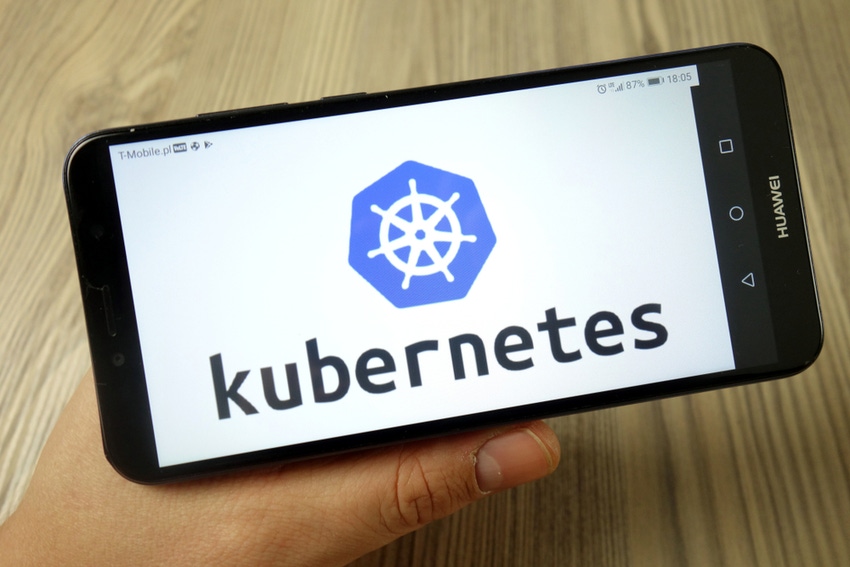Channel partners that can provide Kubernetes services and critical add-ons will win big.
April 19, 2021

By Sandeep Rajan

Sandeep Rajan
One of the biggest technology trends to come out of the pandemic is enterprises accelerating their cloud adoption. As more businesses use cloud computing for applications, storage and more, channel partners are finding new opportunities to help their customers run and manage cloud services. One of the fastest-growing cloud marketplace segments is services involving the Kubernetes container orchestration platform.
Kubernetes is one of the most popular cluster management software solutions, which enables smooth automated app deployment, operability and scalability. Kubernetes provides production runtime environments with highly manageable container-based applications at scale. For example, if an application can be containerized, it can be run and governed by Kubernetes. Backed by Kubernetes, companies can significantly increase their on-prem or cloud-hosted infrastructure utilization as all the computational resources are dynamically and reasonably shared across multiple app-driven processes.
Where the Channel Should Focus Its Kubernetes Expertise
If there’s one thing that nearly every sysadmin agrees on, it’s that a majority of network problems can be traced back to a domain name system (DNS) blunder. Fast-moving containers and cloud-native computing can exacerbate DNS problems.
One of the biggest respites to the DNS problem is CoreDNS, a DNS server designed expressly to be extensible, fast and flexible. CoreDNS has been the default DNS add-on since Kubernetes v1.11 and is vital for having a functional Kubernetes cluster.
When a program calls on CoreDNS to resolve a query, it passes the data through a chain of add-in functions (i.e., plug-ins) until it reaches one that can resolve the query, making it easily customizable for cloud-native microservices discovery and other services.
There’s been an increasing demand from end-users to manage the health, status, rollout and rollback of CoreDNS in a Kubernetes cluster; and not just rely on CoreDNS being managed by the cluster management tools. These tasks used to be complicated, especially with CoreDNS, one of the most complicated add-ons.
OperatorHub.io and the Critical Role of Operators
Software developers and channel partners have a useful tool – the OperatorHub.io public registry – to help their customers demystify the complications and challenging learning curve of Kubernetes deployments. OperatorHub.io includes a growing collection of integrated Kubernetes-native applications called Operators that can be used to get customers on a more straightforward path with the open-source container management system.
For example, the CoreDNS Operator is capable of installing CoreDNS, upgrading the CoreDNS version and migrating the Corefile automatically to ensure it’s up to date and compatible with any version of CoreDNS, providing the user with a seamless experience.
The Operator continuously monitors the CoreDNS resources (Deployment, ConfigMap, Service, etc.) with a controller’s help.
The CoreDNS specifications can be modified through the CustomResource (CR).
The CoreDNS Version, DNS Domain, DNS IP and Corefile can be modified by modifying the CR spec. The Controller will register the changes applied to …
… the CR and reconcile with the CoreDNS resources to reflect the changes.
To learn how to install the CoreDNS Operator on your cluster, you can follow the instructions here.
Extending the Functionality of Kubernetes
Since the use of Operators is now generally accepted, the cluster-add-ons project was created to enable integrators and software developers to manage add-ons better with the help of Operators.
Add-ons extend the functionality of Kubernetes. Like CoreDNS and kube-proxy, some add-ons are considered essential to the functionality of a Kubernetes cluster and are shipped along with cluster management tools like Kubeadm and Kops. Other add-ons, such as Calico, Kubernetes Dashboard and NodelocalDNS, help users manage their clusters.
Each Operator is defined by a CustomResourceDefinition (CRD), which also helps manage the add-ons (e.g., installing, upgrading and choosing the version) by modifying the CRD without being dependent on the cluster management tools.
The Need for Cluster-Add-on Operators
Today, cluster management tools like Kubeadm, Kops and Cluster API are bundled with essential add-ons like CoreDNS and kube-proxy.
Some of the challenges faced are:
Users want more flexibility with managing the add-ons installed in their clusters. Currently, add-ons get automatically managed alongside the life cycle of the cluster. For example, if a user upgrades or downgrades their version of Kubernetes, the add-on(s) version gets upgraded or downgraded along with it.
It’s becoming challenging to manage cluster management tools due to the add-ons becoming increasingly complex.
In the past, there was an attempt to solve these problems via the bash version of add-on-manager. However, this was unsuccessful and hasn’t been widely adopted.
Operators allow users to decouple the life cycle of the add-ons from the life cycle of the cluster.
Software developers and integrators can tailor the add-on in a limited way (e.g., installing, upgrading) through the CRD. Each Operator has its own Controller, a control loop that watches the state of add-on resources and makes or requests changes where needed. The Controller tries to move the current state of the add-on resources closer to the desired state.
Creating an Operator: The cluster-add-on Operators are created with the help of Kubebuilder, a framework for creating Kubernetes APIs using CRDs. If you’re interested in creating an Operator, please check out these step-by-step instructions on creating and deploying your Operator.
Project Status
Today, the cluster-add-on repository contains many Operators — such as CoreDNS, NodelocalDNS and kube-proxy, which can be installed and enable users to manage these add-ons on their Kubernetes clusters.
The cluster-add-on project also contains the add-on-installer library, which functions as a small implementation for applying add-on operators to the Kubernetes cluster using kubectl and Kustomize.
Future work: We are working toward integrating the Operators into cluster management tools such as Kubeadm, Kops and Cluster API.
Reaching out: If you’re interested in the cluster-add-ons project, want to discuss Operators, add-ons or new features, or if you need help, contact us at #cluster-addons Slack or via the SIG Cluster Lifecycle group.
Sandeep Rajan is a software engineer at Infoblox focusing on open source contributions to the Cloud Native Computing Foundation (CNCF) projects CoreDNS and Kubernetes. He earned his master’s in telecommunications engineering from the University of Maryland College Park. Follow him on LinkedIn or @Infoblox on Twitter.
You May Also Like
